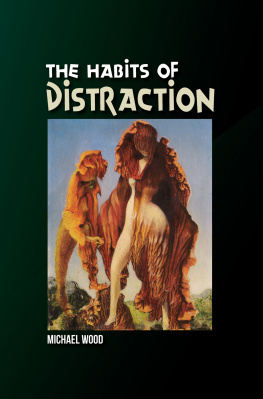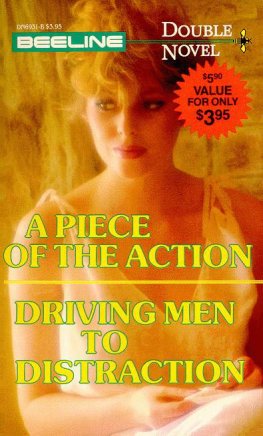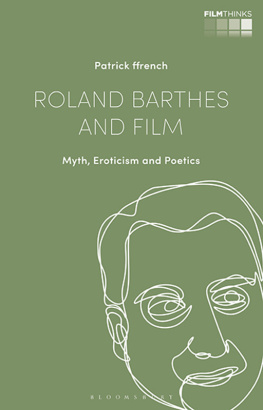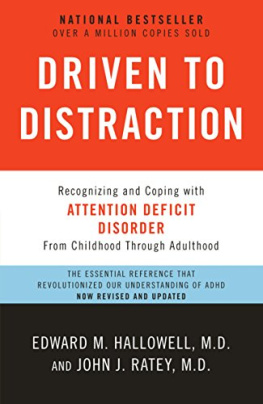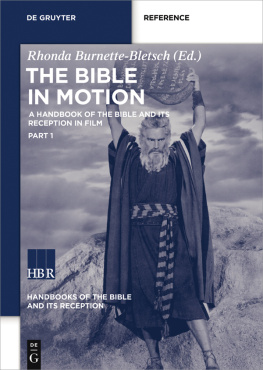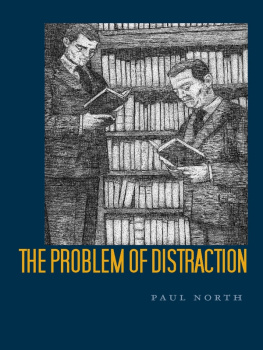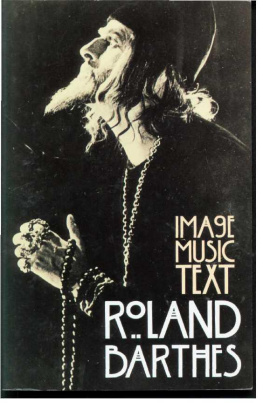

a creative intellectual enterprise as rare as it is necessary in an academy which is now over-institutionalised and deadened by bureaucracy.
Jonathan Dollimore
GIVEN: 1 Art 2 Crime
Modernity, Murder and Mass Culture
Jean-Michel Rabat
Heideggers Bicycle
Interfering with Victorian Texts
Roger Ebbatson
Someone Called Derrida
An Oxford Mystery
John Schad
The English Question; or, Academic Freedoms
Thomas Docherty
The Prodigal Sign
Kevin Mills
Rapture: Literature, Secrecy, Addiction
David Punter
The Habits of Distraction
Michael Wood
John Schad is Professor of Modern Literature at the University of Lancaster. He is the author of The Reader in the Dickensian Mirrors and Victorians in Theory , the editor of Dickens Refigured , Thomas Hardys A Laodicean , and Writing the Bodies of Christ ; and co-editor of life.after.theory . His Queer Fish: Christian Unreason from Darwin to Derrida was published by Sussex Academic in 2004.
A depiction of confusion is not the same as a confused depiction.
Walter Benjamin, Central Park
THE HABITS OF
DISTRACTION
MICHAEL WOOD

Copyright Michael Wood, 2018.
The right of Michael Wood to be identified as Author of this work has been asserted in accordance with the Copyright, Designs and Patents Act 1988.
ISBN 9781845192495 (Cloth)
ISBN 9781845192501 (Paper)
ISBN 9781782845553 (PDF)
ISBN 9781782845539 (EPUB)
ISBN 9781782845546 (Kindle)
First published 2018 in Great Britain by
SUSSEX ACADEMIC PRESS
PO Box 139
Eastbourne BN24 9BP
Distributed in the United States of America by
SUSSEX ACADEMIC PRESS
Independent Publishers Group
814 N. Franklin Street, Chicago, IL 60610
All rights reserved. Except for the quotation of short passages for the purposes of criticism and review, no part of this publication may be reproduced, stored in a retrieval system, or transmitted, in any form or by any means, electronic, mechanical, photocopying, recording or otherwise, without the prior permission of the publisher.
British Library Cataloguing in Publication Data
A CIP catalogue record for this book is available from the British Library.
Library of Congress Cataloging-in-Publication Data
Names: Wood, Michael, 1936 author.
Title: The habits of distraction / Michael Wood.
Description: Brighton, [England]: Portland, Oregon : Sussex Academic Press, 2018. | Series: Critical inventions | Includes bibliographical references and index.
Identifiers: LCCN 2018005816| ISBN 9781845192495 (hbk : alk. paper) | ISBN 9781845192501 (pbk : alk. paper)
Subjects: LCSH: Benjamin, Walter, 18921940Criticism and interpretation. | Barthes, RolandCriticism and interpretation. | Distraction (Philosophy) Motion picturesPhilosophy. | ArtsPhilosophy. | Interpretation Philosophy.
Classification: LCC PT2603.E455 Z964 2018 | DDC 801/.95dc23
LC record available at https://lccn.loc.gov/2018005816

Typeset and designed by Sussex Academic Press, Brighton & Eastbourne
Printed by TJ International, Padstow, Cornwall
Contents
Series Editors Preface
As Michael Wood observes, for Walter Benjamin, even the distracted person can form habits. Distraction has its habits, if you will. It is less mercurial than I think. More predictable than I think. More mappable. It may even be possible to write a book about distraction. This book for instance. A book in which, in short, distraction is shown to be itself a habit.
But is it, you ask, a good habit? Difficult to say. It may, it seems, be bad for you, very bad. Indeed, you may even die of it. Like the critic Roland Barthes. As Wood reminds us, Barthes once stepped off a sidewalk in Paris only to be hit by a laundry van. To be distracted from life, remarks Wood, means to lose it.
So, no, it perhaps may not be said that the habit of distraction is good for you. What, though, can be said is that Wood is good at the habit of distraction. Indeed, it is a habit he here turns into an art. But then, he has long been drawn to what he calls scenes of distraction, artful scenes, such as jazz clubs and cinemas and, yes, books, even (or perhaps especially) when they are being examined slowly, patiently, carefully. Literary criticism, we call it. As Wood here not only tells but shows, books most certainly can and should distract the literary critic. We critics may yet choose to become lost within our books. We may yet allow ourselves to go astray and to be thereby, as he says, citing another, at home in the worlds scatter.
And this is particularly so, it seems, if, like Wood, we dare to read closely very closely. This, he shows, means, paradoxically, to concentrate on what distracts us, to fuss excessively over all the stray, marginal and unimportant details that really should not command our attention, and that we should ignore, banish from our thoughts, not be tempted by. But there is herein a risk, he warns. Such a concentrated-ly distracted form of close reading may in the end, if there is an end, an end to distraction, as Wood says (hoping there is not), mean that we get too close.
Too close to what?
Too close to stories. To be distracted, shows Wood, is to tell stories; we may return from distraction with tales not analysis
Too close to freedom. To be distracted, shows Wood, may entail freedom of a kind and an extent that we do not want.
Too close to defeat. To be distracted, shows Wood, may mean an end to the glory of our success, the glory of our success as serious, admired, and tenured scholarly readers.
Too close to others. When we consider the habits a distracted person may form, says Wood, we have to think of habits we may share with others. We may, to our alarm, find ourselves, he says, among what Claudius in Hamlet calls the distracted multitude. Close-up and impersonal, as it were. At the end of distraction, says Wood, lies... sheer, new immediacy. In short, he foresees a world, or scene without mediation without, in particular, the mediation of conventional criticism, a mediation that keeps at a safe distance the worldly scatter of not only books but people, other people, all the other people, even those people who have nothing to do with universities. Allowing ourselves as critics to be distracted may, then, mean that we are, in the end, drawn out of the academy. Drawn out of its gilded cage. But then, as Wood says, cages are not everything. Read on.
J OHN S CHAD , Series Editor Lancaster, January 2018
The Critical Inventions Series
Do I dare / Disturb the universe?
(T. S. Eliot, The Love Song of J. Alfred Prufrock, 1917)
In 1961 C. S. Lewis published An Experiment in Criticism ; over forty years later, at the beginning of a new century, there is pressing need for a renewed sense of experiment, or invention in criticism. The energies unleashed by the theoretical movements of the 1970s and 1980s have been largely exhausted many now say we are experiencing life after theory; some, indeed, say we are experiencing life after criticism. Criticism, we might say, is in crisis. But that is where it should be; the word criticism comes, as we know, from the word crisis.
Next page
